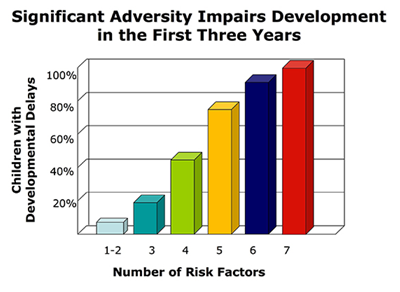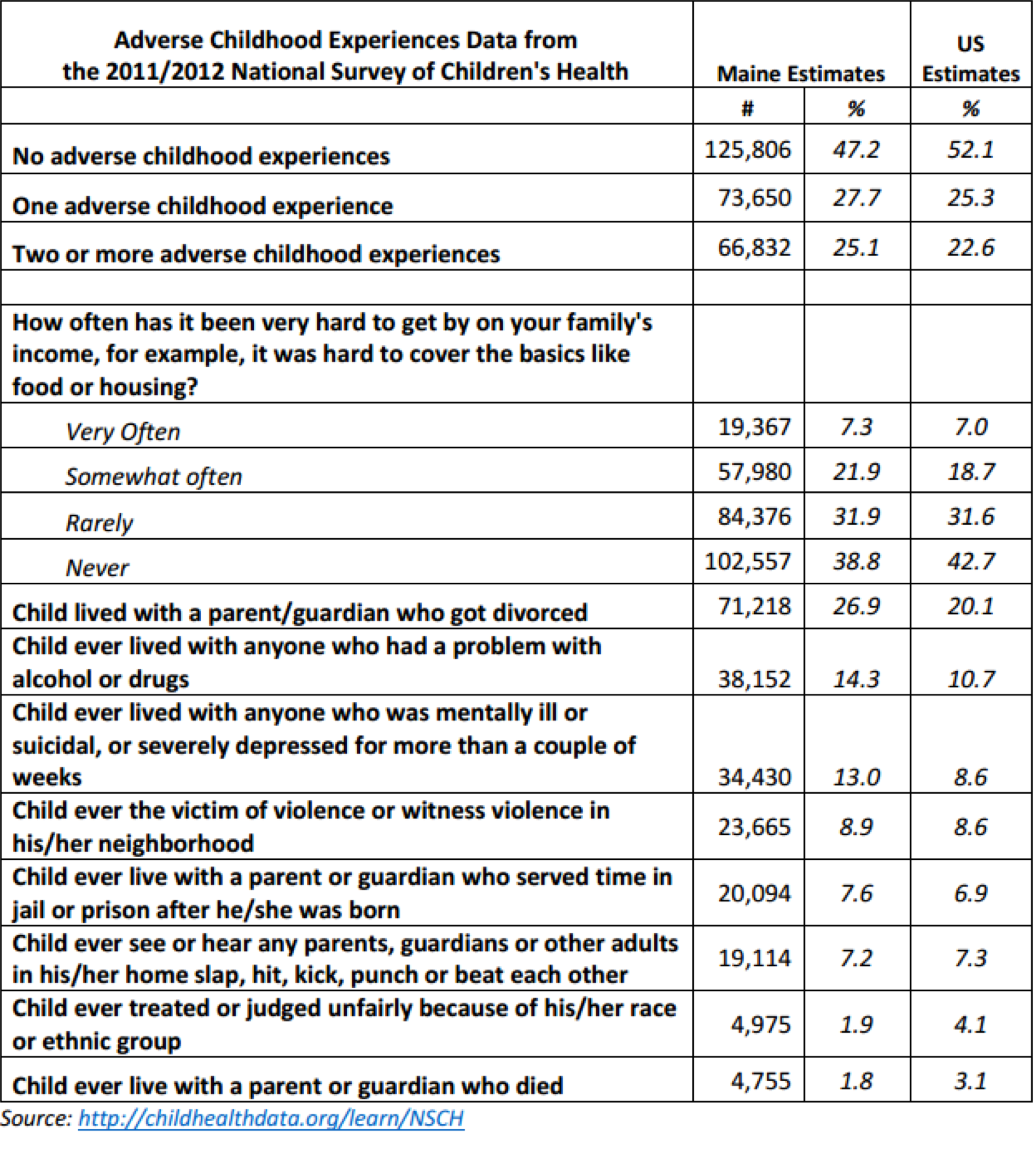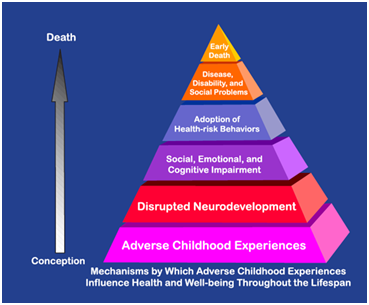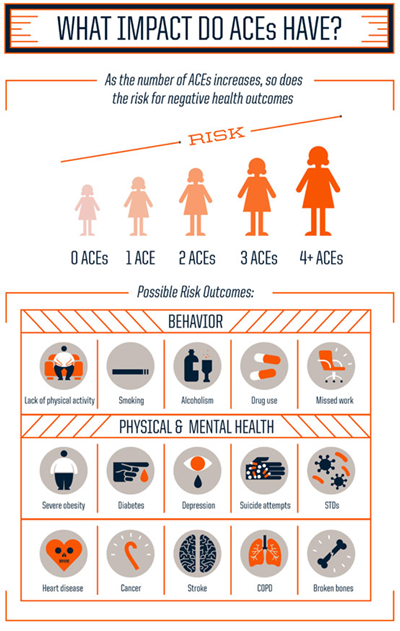Lesson 7: The ACES
Learning Outcomes
Upon completion of this lesson's material, students will be able to
- Define Adverse Childhood Experiences (ACE's)
- Explain the effects of ACE's
- Explore the ACE's through our own lens
- Discuss the national and state level initiatives to reduce ACEs
Teaching
Adverse Childhood Experiences, better known as the ACE’s, are childhood experiences that affect a child’s brain development and have lasting, life-long effects. As we have learned, 90% of the brain is developed by the time a child is five, 80% of that is by the time they are three. Unfortunately, the more ACE’s, the more negatively affected the brain is, thus impacting the health and wellbeing of the child as they get older.
The first ACE's study was conducted from 1995-1997. This study was designed to look closer at the effects of childhood abuse and neglect on later-life health and well-being. The first study showed that the more adverse childhood experiences one had, the greater presence of adult health problems. The CDC (Center for Disease Control and Prevention) continues this study by using the Behavior Risk Factor Surveillance System (BRFSS). This survey collects data every year and uses the data to inform practice and implement plans. The survey is composed of ten questions that address:
10 types of Adverse Childhood Experiences
- Physical abuse
- Sexual abuse
- Emotional abuse
- Physical neglect
- Emotional neglect
- Mother treated violently
- Household substance abuse
- Household mental illness
- Parental separation or divorce
- Incarcerated household member
How Childhood Trauma Can Make You a Sick Adult is a short video that nicely summarizes the history, the correlation between childhood trauma and adult health factors and finally, what we need to do about it. Keeping the above 10 ACES in mind, watch the following video and listen closely to the correlation findings.
From the video and the image above, it is quite obvious (and a bit scary), how the ACE's affect an individual's health and well-being. Specifically, children that are repeatedly exposed to toxic stress (strong, frequent and/or prolonged adversity) have disrupted development of their brain and other organs in the body. This increases the risk for stress-related diseases and impairment. This disruption lasts for decades. More immediately, we see young children with behavioral issues, developmental delays, increased acute illnesses and other significant barriers to typical growth. Of course, the more risk factors, the more likely the child will exhibit some of these issues and delays.
Click on this image to view a larger version
In 2011/2012, Maine conducted a National Survey of Children's health and gathered the Adverse Childhood Experiences Data. The estimates are disappointing to say the least. Maine estimates were higher than the United States estimates in several areas.


Read Chapter 6 in The Early Years Matter (pages 72-84)
Assessment
Lesson 7 Assignment
First, I want you to find out, what is your ACE score? You do NOT have to provide the score in the assignment or any of the specifics. Your answers are strictly your information alone unless you chose to use examples in your assignment. When you find out your ACES score, scroll down to see how that correlates to health and well-being risk factors.
Second, I want you to explore the following websites for more information about the ACE’s and ACE’s initiatives.
• ACES Too High
• CDC ACE Study
Third, write a two page summary on the following information. Be SPECIFIC with EXAMPLES. Your information MUST come from the two websites!
1. What is your understanding of what the ACE’s are?
2. What are the effects of ACE’s in Early Childhood Education?
3. How has exploring your own ACE’s score helped you in understanding more about the families and children you may be serving?
4. Through your exploration of the websites, what at least three of the National initiatives happening?
5. Through your exploration of the websites, what at least three of the State initiatives happening? (Maine specifically).
6. How does this impact your work with children and families in early childhood education?
7. What are three strategies you can do right now to combat the ACES?
Click here to view the rubric for this assignment
Lesson 7 Discussion A
Share one thing that surprised you as you were learning about the ACE’s.
Lesson 7 Discussion B
From your text, what is one strategy to support children that you find most valuable and why?

